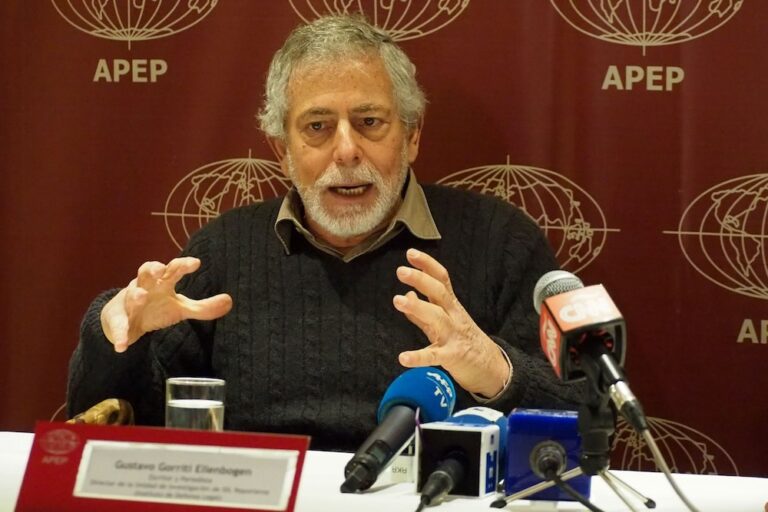(IAPA/IFEX) – The following is a 13 July 2005 IAPA press release: IAPA concerned about Peruvian law that contradicts principles on access to information Miami (July 13, 2005) – The Inter American Press Association (IAPA) expressed concern over the recent approval by the Peruvian Congress of a law on national intelligence that contradicts legislation on […]
(IAPA/IFEX) – The following is a 13 July 2005 IAPA press release:
IAPA concerned about Peruvian law that contradicts principles on access to information
Miami (July 13, 2005) – The Inter American Press Association (IAPA) expressed concern over the recent approval by the Peruvian Congress of a law on national intelligence that contradicts legislation on the right to access information in effect in that country since 2002.
The IAPA supported the position of the Peruvian Press Council (Consejo de la Prensa Peruana, CPP), which considers that the Law on the National Intelligence System (SINA) and the National Intelligence Directorate (DINI), approved by Congress on June 23 and which needs to be signed by President Alejandro Toledo, contains aspects that are a setback as regards citizens’ right to access information.
As regards national security, the new law increases the number of exceptions to the current rule, established under the general law on access to information. The new law also raises from 5 to 10 years the period that must lapse before confidential information can be obtained, 15 years for restricted information, and 20 years for classified information. It also allows the National Intelligence Council (COIN), DINI, Ministry of Defense, Ministry of the Interior, and the General Administration on Security and Defense of the Ministry of Foreign Relations, to create their own guidelines for classifying and declassifying documents.
Gonzalo Marroquín, chairman of the IAPA’s Committee on Freedom of the Press and Information, stated that “we agree with the [CPP] that the law, far from promoting transparency, places obstacles on accessing information of public interest in a prompt manner and limits the effectiveness of the Law on Transparency and Access to Public Information (No. 27806), whose approval in 2002 set a precedent for the passing of similar laws in other Latin American countries.”
Meanwhile, IAPA President Alejandro Miró Quesada, editor of the Peruvian newspaper El Comercio, stated that “although all legislation establishes that national security is one of the exceptions as regards accessing information, the fact that the new law broadens certain categories and extends timelines for the release of classified information, restricts and weakens the rights and guarantees achieved in 2002 on the overall issues of transparency and access.”
Marroquín, editor of the Guatemalan daily Prensa Libre, added that “the laws on intelligence contradict the public’s right to information and we trust that President Toledo will amend the position of the Peruvian Congress.”


